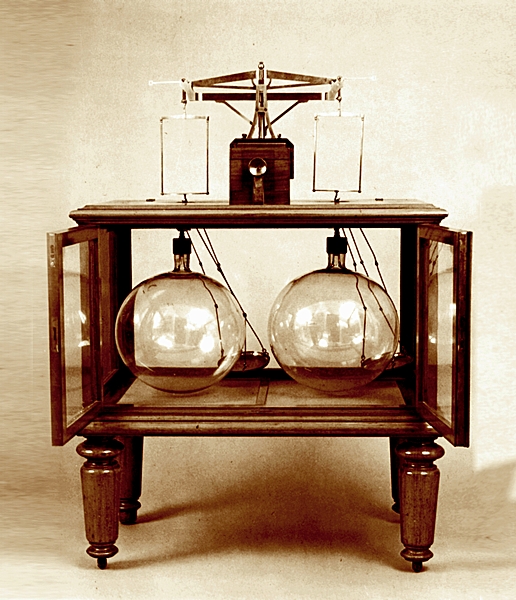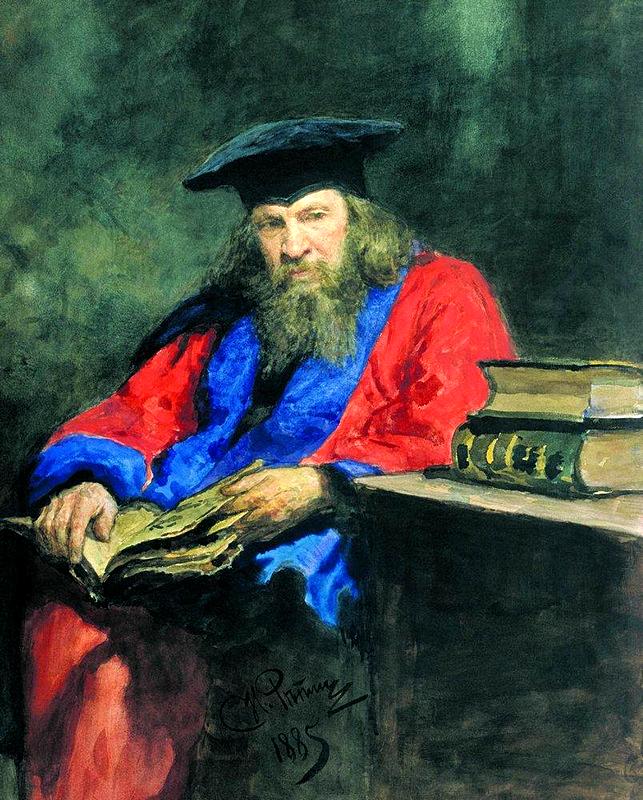Dmitry Mendeleev

Born: Verkhnie Aremzyani, Tobolsk Governate - 8 February 1834
Died: St. Petersburg - 2 February 1907
Dmitry Ivanovich Mendeleev is one of the most famous chemists in history thanks to his formulation of periodic table, which apparently came to him in a dream, and allowed him to predict the characteristics of as-yet undiscovered elements. Thanks to his remarkable clarity of thought, he was able to excel in a variety of other disciplines as well as pure chemistry. The chemist Lev Chugaev, described Mendeleev as "a chemist of genius, first-class physicist, a fruitful researcher in the fields of hydrodynamics, meteorology, geology, certain branches of chemical technology and other disciplines adjacent to chemistry and physics, a thorough expert of chemical industry and industry in general, and an original thinker in the field of economy."
Mendeleev was born in the village of Verkhnie Aremzyani, near Tobolsk in Western Siberia, in 1834. He came from an unusually large family, and his mother is supposed to have given birth to a total of 17 children, although only eight survived to adulthood, of which Mendeleev was the youngest. His father, Ivan Pavlovich Mendeleev, was a teacher of politics and philosophy, and the director of the Tobolsk Gymnasium. The year Mendeleev was born, his father was blinded by cataracts and forced to retire from teaching, which caused the family considerable financial difficulty. However, Mendeleev's mother, Maria Dmitrievna, a remarkably resourceful and energetic woman, managed to resuscitate an old glass factory that belonged to her brother and, as its director, was able to provide for her invalid husband and many offspring.

Maria Dmitrievna was also instrumental in launching her son's career. Mendeleev did not distinguish himself at school - he had a particular antipathy for Latin and Theology, and would later recall how he and his schoolmates spent much time fighting in the streets of Tobolsk. Nonetheless, his mother, convinced of his abilities, abandoned her life in Siberia to accompany him to St. Petersburg, where in 1850 he entered the Main Pedagogical Institute. Shortly after graduating in 1854, he fell ill with tuberculosis and was obliged to move to Crimea for treatment. While convalescing, he taught science at the Simferopol Gymnasium and the Lycée Richelieu in Odessa.
He returned to St. Petersburg at the beginning of 1856 fully recovered and ready to begin his academic career in earnest. He defended his dissertation on the structure of siliceous formations to win "the right to give lectures", published his candidate's dissertation on isomorphous crystals, was awarded his Master's Degree in October, and in January 1857 a privatdozent (roughly equivalent to an assistant professor) at St. Petersburg Imperial University.

Mendeleev would teach at the university - with the exception of two years spent in Heidelberg studying capillarity and the use of spectroscopes in chemical analysis from 1859 to 1861 - for over 30 years. In 1863, he was made a professor of the St. Petersburg Technological Institute, while continuing to teach organic chemistry at the university. His interest was always as much in the practical applications of chemistry as in theory, and he made several journeys to the Caucasus to get first-hand experience of the nascent oil industry. His doctoral dissertation, which he defended in 1865, was a comprehensive study of the use of alcohol as a solvent, for which he is celebrated (inaccurately) in folklore as the inventor of Russian vodka.
His most famous achievement, the periodic table of the elements, came as a result of work on his two-volume Principles of Chemistry, the definitive academic textbook of the time. Mendeleev's interest in providing a system to organize the known chemical elements according to periodicity was not unique, but unlike his contemporaries such as Lothar Meyer in Germany, Mendeleev was the first to propose a system that could also predict as-yet undiscovered elements and their characteristics. He would later claim that the table came to him in a dream. The value of his work was not immediately recognized, but with the discovery of elements such as gallium and scandium in 1875 and germanium in 1886, the effectiveness of his system became indisputable.

Mendeleev resigned from St. Petersburg University in 1890 after taking the side of his students in protests the previous year. In 1893, he went to work for the Ministry of Finance as the head of the Main Chamber of Weights and Measurements, in which role he was instrumental in transferring the Russian Empire to the metric system. He also made important advances in the fields of meteorology and economics, writing polemical texts in the latter encouraging the increased industrialization of Russia. In 1899, he led an expedition of leading scientists to the Urals in an effort to encourage development of the region.
By the end of his life, Mendeleev had been honoured by scientific institutions all over Europe, including the Royal Society in London, which gave him the Davy Medal in 1882 and the Copley Medal in 1905. He was never awarded the Nobel Prize, however, mainly due to a personal conflict with the influential Swedish physical chemist Svante Arrhenius. In his homeland, too, he was never elected to a full member of the Russian Academy of Sciences, perhaps because of his prickly character and serial disputes with several of the Academy's leading members, perhaps because of his scandalous second marriage - at the age of 43, he fell madly in love with the 18-year-old Anna Ivanovna Popova, and married her one month before his divorce from his first wife was finalized. His daughter Lyubov from his second marriage would go on to be the wife of the great St. Petersburg poet Alexander Blok.

Mendeleev died from influenza at the age of 72, widely recognized as one of the great scientific minds of his age. By the end of the 19th century, thanks in no small part to his extraordinary labours, St. Petersburg had become unquestionably one of Europe's greatest scientific centres. In commemoration of his life and work, numerous institutions and scientific awards now bear his name, as well as the element mendelevium and the Mendeleev lunar crater. In St. Petersburg, there is a Memorial Museum Apartment housing his archives in the Twelve Colleges Building, and the street that runs past it was renamed Mendeleevskaya Linia (Mendeleev Line) in 1923. His name was also given to the National Metrology Institute, located opposite the main building of the Technological Institute. Next to the building can be found a statue of Mendeleev seated in contemplation, with his periodic table on the wall beside him.

